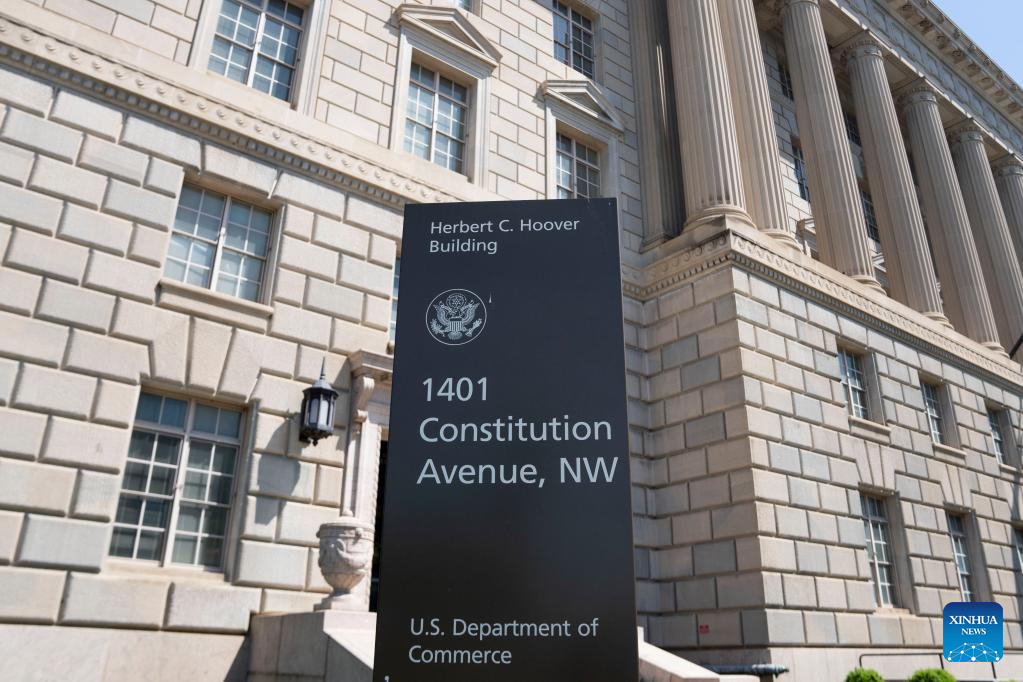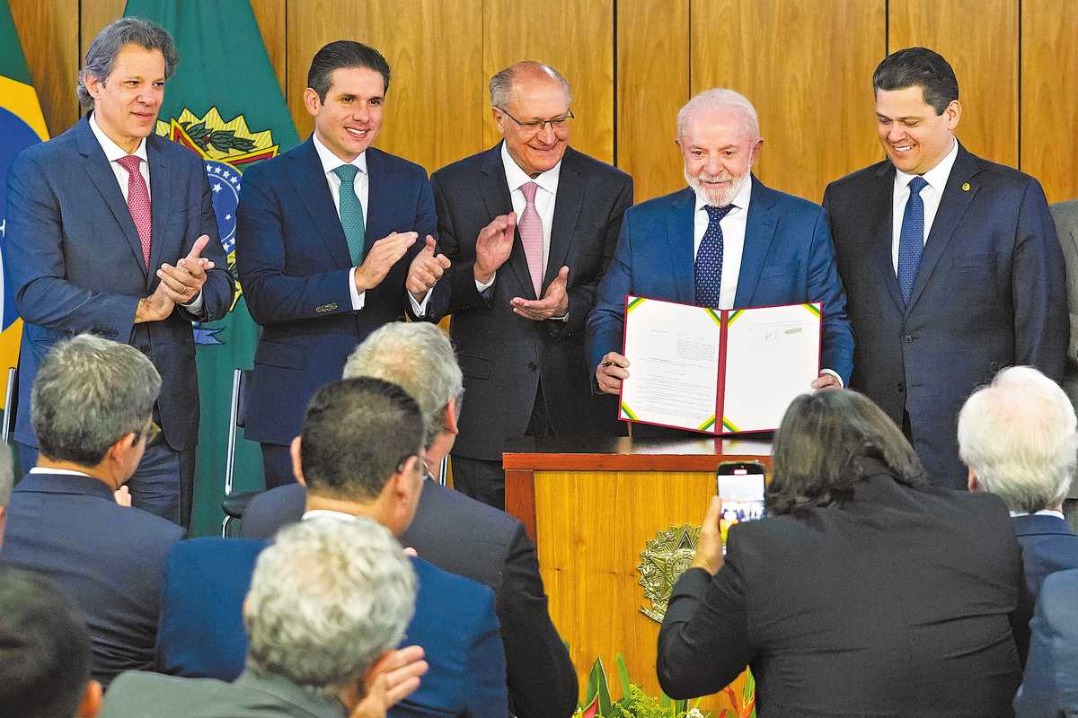US economy pulls back, has underlying strength



The US economy unexpectedly receded in the first three months of 2022 at an annualized rate of 1.4 percent, the Commerce Department reported Thursday, the first contraction in economic growth in the US since the early days of the pandemic two years ago.
The economy retracted slightly more than the 1 percent economists expected as a rush of imported goods and fading fiscal stimulus led to a decline in gross domestic product (GDP), according to preliminary data released by the Bureau of Economic Analysis.
The expiration of pandemic aid programs, declines in government spending and a drop in exports also weighed on the economy.
Slower growth in inventories shaved close to a percentage point off GDP; a ballooning trade deficit took 3.2 percentage points off growth as imports outweighed exports; and an 8.5 percent decline in defense spending knocked one-third of a percentage point off the GDP reading.
But consumer spending — which accounts for nearly 70 percent of the US economy — rose 2.7 percent for the quarter even though the worst inflation rate since the 1980s has kept pressure on prices.
"Consumer spending is the aircraft carrier in the middle of the ocean — it just keeps plowing ahead," Jay Bryson, chief economist for Wells Fargo, told The New York Times.
Though some economists and banks have issued warnings about a possible recession, other economists on Thursday didn't see the lower GDP number as a harbinger of one.
"The negative GDP number is a surprise, but not a material one," Moody's Analytics chief economist Mark Zandi told CNN. "The economy continues to grow strongly and at a pace that continues to bring down unemployment."
RSM chief economist Joe Brusuelas said the US economy will return to growth during the second quarter, "without a doubt".
Pantheon Macroeconomics chief economist Ian Shepherdson wrote in a research note: "This is noise; not signal. Don't panic. This is not the start of a recession.''
"The first GDP contraction since the recession ended is sure to ignite fears that the economy is stalling out but on closer inspection, the report isn't as worrisome as it looks," wrote Lydia Boussour of Oxford Economics in an analysis Thursday. "The details of the report point to an economy with solid underlying strength and that demonstrated resilience in the face of Omicron, lingering supply constraints and high inflation."
President Joe Biden said in a statement after release of the report, "I'm not concerned about recession." He said the lower-than-expected GDP estimate was "affected by technical factors''.
"I think what you're seeing is enormous growth in the country that was affected by everything from COVID and the COVID blockages that occurred along the way," he said.
With midterm congressional elections coming in November, Republicans jumped on the GDP report.
"Accelerating inflation, a worker crisis and the growing risk of a significant recession are the signature economic failures of the Biden administration," Representative Kevin Brady, a Texas Republican, said in a statement Thursday.
Representative Kevin McCarthy of California, the House Republican leader, also blamed Democrats for the drop in growth and 40-year-high inflation levels.
"In 15 months, one-party Democrat rule has squandered America's recovery and left you paying the price," he wrote on Twitter.
While most economists have forecast a rebound in the second quarter, with robust hiring, wage gains and consumer spending sustaining growth, some economists and banks have expressed concern about a potential recession as the Federal Reserve aims to raise interest rates fast enough to cool off the rapid inflation without stopping economic and job growth.
Goldman Sachs has said it sees about a 35 percent chance of negative growth next year.
Deutsche Bank sees the chance of a "significant recession" in late 2023 and early 2024 as the result of the Fed tightening interest rates much more than forecasters currently anticipate.
On Wall Street, stocks rallied Thursday as strong quarterly results for beaten-down technology and growth stocks offset concern about the economy's contraction in the first quarter.
Although after the market close, Amazon.com reported its first quarterly loss since 2015, as a drop in online shopping, increased costs from inflation, and supply-chain problems took a toll, as did a stake that the e-commerce giant took in EV-maker Rivian Automotive.

































